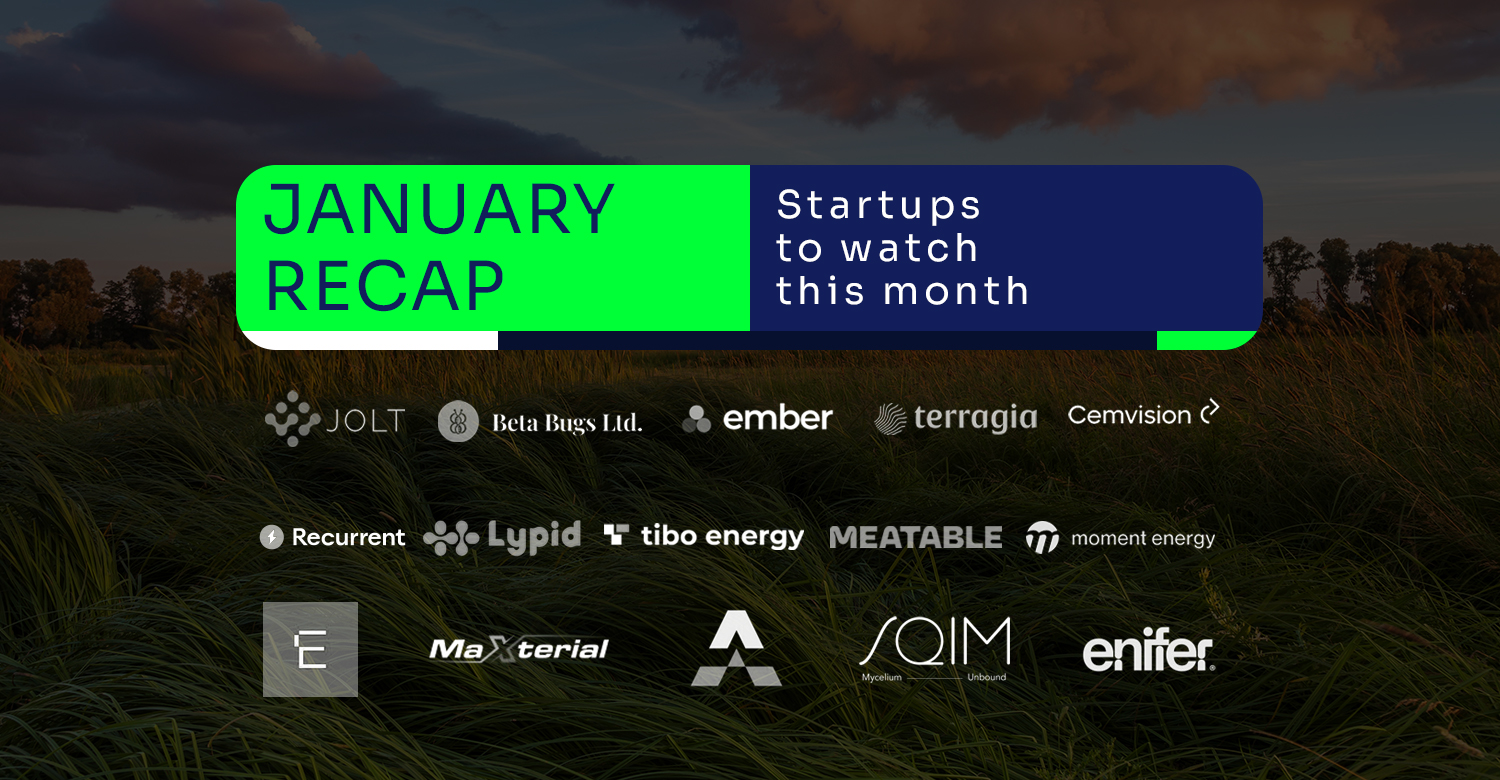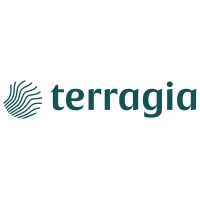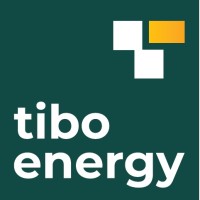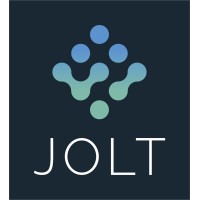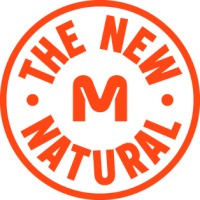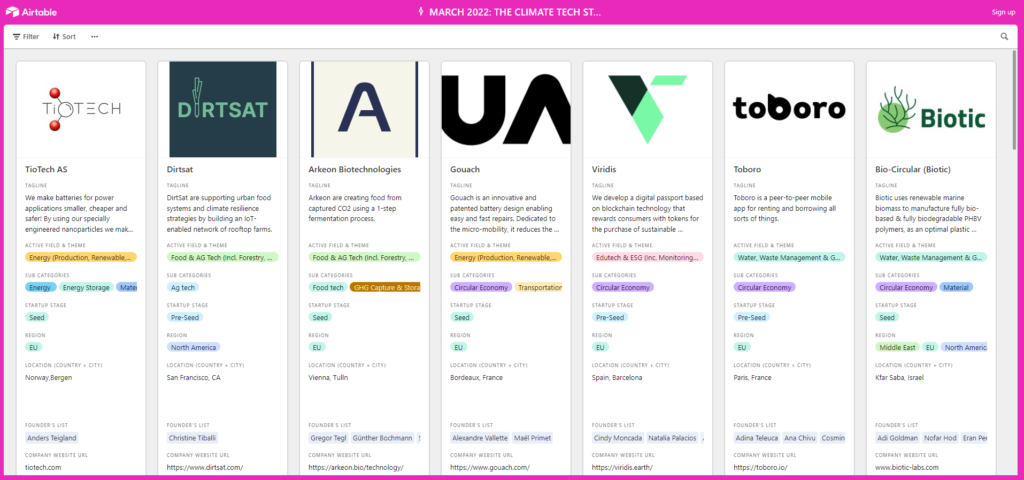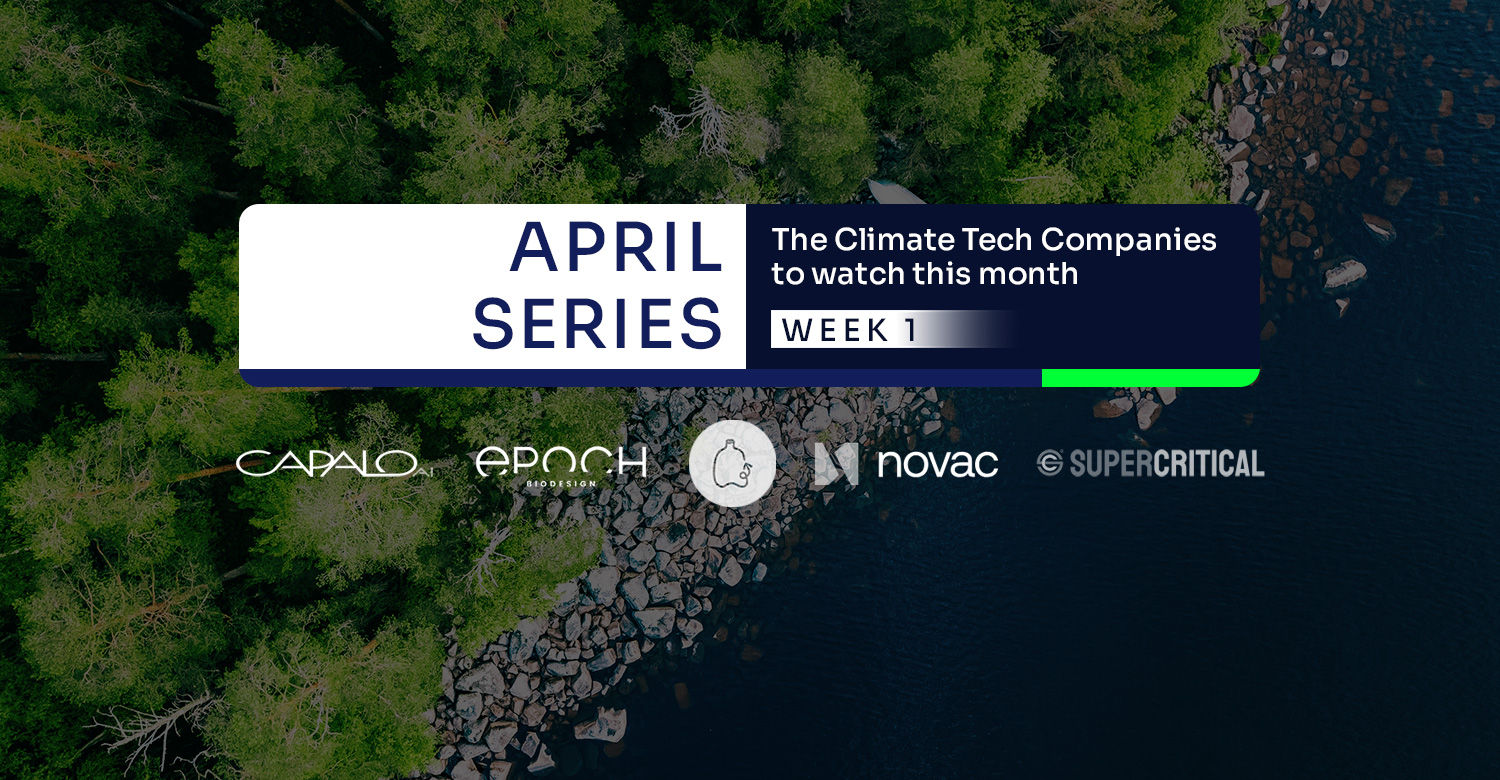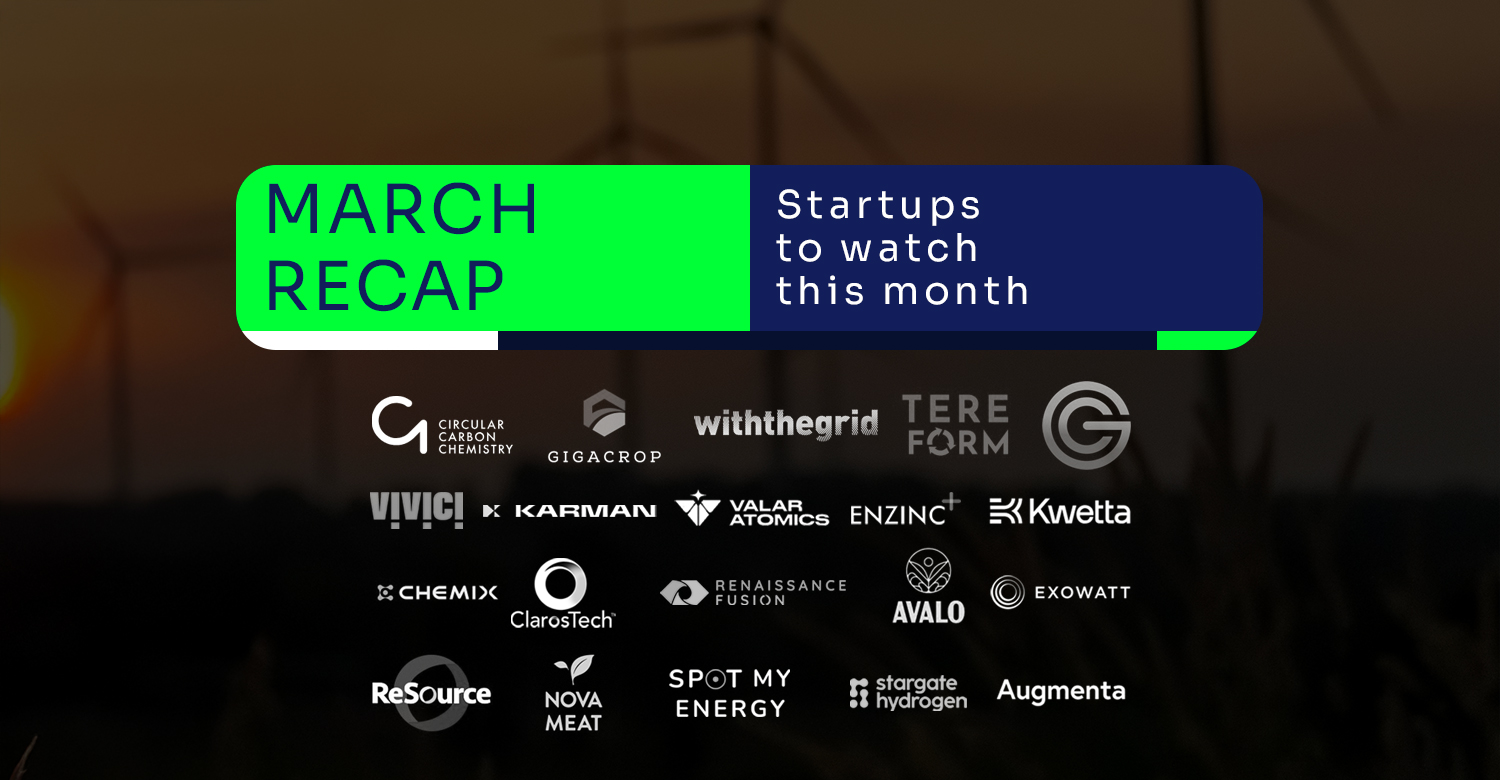Every week, we feature 5 incredible climate tech startups, companies, or projects that are leading the fight against the climate crisis. Now at the end of this month of January 2025, we provide a recap of the startups to watch in climate tech.
These startups have covered a range of fast-growing industries such as AI, GHG Capture and monitoring, Energy production and storage, Fintech, Foodtech, Agtech, and much, much more.
The list below is a recap of all the startups we have featured in January with some insight into the innovative work they and their teams are doing.
We hope you find this resource useful and that you can refer back to it anytime you are looking for companies to support, invest in, work for, or collaborate with.
These startups are all added to our running list, which we have categorized based off of fuel emission sector from the most detailed, recent data SBC could identify from the World Resource Institute 2016.
These sectors are as follows:
Energy
Terragia – Week 2
Terragia is pioneering the future of biofuels by leveraging engineered thermophilic bacteria to convert non-food cellulosic biomass into sustainable fuels and chemicals. By eliminating the need for added enzymes and extensive pretreatment, Terragia’s innovative biological conversion system significantly reduces costs and enhances the economic viability of biofuel production.
Tibo Energy – Week 3
Tibo Energy is transforming the way energy is managed with its advanced AI-driven Energy Management System (EMS). By optimizing energy flows in real-time, Tibo reduces costs, enhances efficiency, and minimizes environmental impact—helping businesses and energy hubs transition to smarter, more sustainable operations.
Moment Energy – Week 3
Moment Energy repurposes electric vehicle (EV) batteries to create clean, reliable, and cost-effective energy storage solutions. By giving second life to EV batteries, the company helps reduce waste, lower carbon footprints, and improve energy accessibility for off-grid and commercial users.
Addis Energy – Week 4
Addis Energy is scaling new ammonia production pathway that revolutionizes the century-old chemical production process. By targeting iron-rich resources in the subsurface, Addis is forging a new pathway for chemical synthesis: injecting engineered fluids that harness the chemical & thermal potential of the earth to produce clean ammonia. This transforms ammonia synthesis into a net energy positive process without any CO2 emissions and enables producing ammonia cheaper than traditional methods.
Transportation
Ember – Week 2
Ember is revolutionizing public transport with the UK’s first all-electric intercity bus service. By integrating proprietary technology that optimizes vehicle monitoring, charging, and ticketing, Ember provides a seamless, affordable, and zero-emission travel experience that is better for both passengers and the planet.
Recurrent – Week 3
Recurrent provides battery and range reports for used electric vehicles, ensuring buyers and sellers have full confidence in an EV’s most crucial component—the battery. By leveraging data from thousands of EVs and advanced battery analytics, Recurrent brings transparency to the used EV market, eliminating uncertainty and making the transition to electric vehicles easier for consumers.
ENAPI– Week 4
ENAPI is transforming EV charging infrastructure by providing a transaction broker and clearing house for the industry. By seamlessly connecting Charge Point Operators (CPOs) and eMobility Service Providers (EMSPs) through a single API, ENAPI enables frictionless interoperability, enhanced reliability, and a superior charging experience for EV drivers.
Industry
Jolt – Week 2
Jolt Solutions is revolutionizing industrial catalysis with its patented SPARKFUZE process, delivering next-generation electrodes that are greener, more efficient, and cost-effective. By eliminating the need for traditional electrolysis methods and green chemicals, Jolt enables scalable and durable solutions for key sectors like green hydrogen, redox flow batteries, and carbon reduction technologies.
Maxterial – Week 4
Maxterial is pioneering next-generation metallic coating technology that protects against wear, heat, and corrosion while eliminating toxic chemicals such as Hexavalent Chromium and PFAS/PFOS. With a safe, durable, and cost-effective solution, Maxterial is transforming industries including semiconductors, automotive, aerospace, and heavy-duty equipment to improve performance and sustainability.
Food, Agriculture and Land Use
Beta Bugs – Week 2
Beta Bugs is a pioneering biotechnology company that enhances insect strains to optimize efficiency and sustainability in the insect farming industry. Through advanced genetic breeding programs, the company produces high-performance black soldier fly strains, such as HiPer-Fly®️, which improve yield and profitability for farmers while promoting a circular, sustainable protein source.
Lypid – Week 3
Lypid revolutionizes plant-based meats by introducing PhytoFat™, a plant-based fat that delivers the rich, indulgent taste and mouthfeel of animal fats—without the downsides. By enhancing the texture and juiciness of plant-based proteins, Lypid makes sustainable eating more delicious and satisfying than ever.
Meatable – Week 3
Meatable is revolutionizing the meat industry by producing 100% real, delicious meat without the need for livestock. Using cutting-edge cell cultivation technology, Meatable creates sustainable, ethical, and scalable meat products that taste just like traditionally farmed meat—without harming animals or the planet.
Enifer – Week 4
Enifer is revolutionizing sustainable protein production by transforming circular economy by-products into PEKILO® mycoprotein—a nutritious, versatile, and planet-friendly protein. By leveraging biotechnological upcycling, Enifer provides scalable, sustainable food solutions that support healthy and delicious diets while reducing environmental impact
Buildings
Cemvision – Week 2
Cemvision is transforming the cement industry by replacing traditional, carbon-intensive production methods with an economical, environmentally friendly, and technically superior alternative. Using industrial residual materials instead of virgin limestone and an electrified production process, Cemvision’s innovative cement binders drastically reduce CO₂ emissions while maintaining the performance standards required for modern construction.
Sqim – Week 4
Sqim is redefining sustainable material production by leveraging mycelium-based biofabrication to create next-generation natural materials for the fashion, interior design, and architecture industries. By merging biotechnology and biofabrication, Squim develops eco-friendly, regenerative materials that replace traditional, resource-intensive alternatives, offering a future where human activity harmonizes with nature.
Find out more about each of these startups by reading the full articles below:
This initiative from Startup Basecamp aims to support founders by giving them access to networking and exposure opportunities that help them to scale and finance their climate tech solutions together with you.
Do you know of other startups we should include in our Startups to Watch Series? Submit to our list!
GET ACCESS TO THE FULL RUNNING LIST DATABASE
The database is accessible to the members of our community as part of other exclusive content we provide to them. Learn more about the membership options here.
Do not hesitate to join our collective movement by requesting your membership.
With care,
The Startup Basecamp Team
